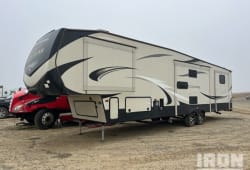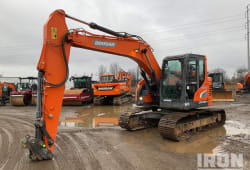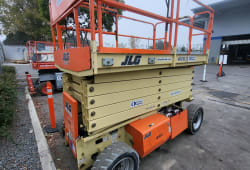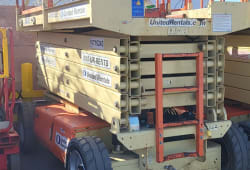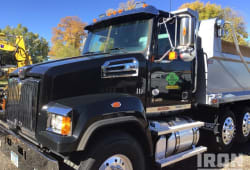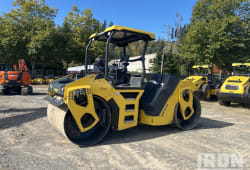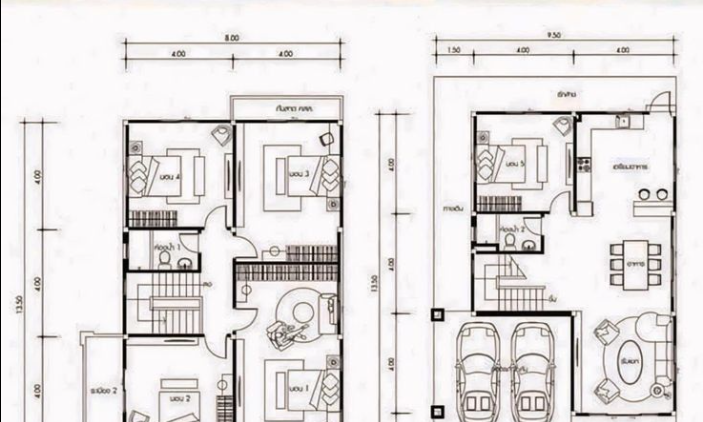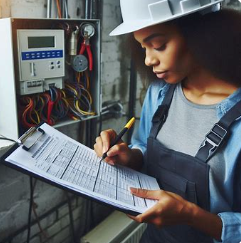A Comprehensive Guide About Compactors
9 Lectura mínima
)
mayo 30, 2023
Are you tired of dealing with bulky bags of waste and inefficient waste management processes? Look no further than compactors. Compactors grab your attention when it comes to trash, garbage, recycling, and soil compaction.
Discover the power of compactors! Whether you're dealing with your trash bags, garbage, or soil, these versatile machines optimize waste handling and space use. Our comprehensive guide explores the benefits, types, and transformative impact of compactors on waste management. Say goodbye to overflowing bins and welcome compacting convenience!
What are compactors?
Compactors are machines that compress the material and reduce waste volume. They are used in waste management and construction to handle and dispose of plastic and various types of waste. These powerful machines save space, reduce costs, and promote efficient waste disposal.
It plays a crucial role in the waste management and construction industries. They help reduce waste volume, allowing for more efficient storage and transportation. Compacting, reduces the number and frequency of waste removal, saving time and costs. Soil compactors ensure the stability and density of soil for construction projects, enhancing safety and durability.
Trash Compactors
Trash compactors are machines used to compress waste materials for efficient disposal. They reduce the size of trash, making it easier to handle and transport. Trash compactors are used in residential, commercial, and industrial settings. They help save space in landfills and reduce the frequency of waste collection.
1. Benefits of trash compactors
Increased waste storage capacity and efficiency. Reduction in frequency of trash collection. Minimized space requirements for waste disposal. Improved cleanliness and odor control dry waste up. Enhanced safety by reducing loose debris. Cost savings through reduced hauling and disposal expenses.
2. How Trash compactors work
They use a hydraulic or mechanical mechanism to compress waste. When waste is deposited into the compactor, a metal ram compacts waste material around it into a smaller size using immense pressure. This compression process reduces the volume of waste, allowing access to more efficient storage and disposal.
3. Popular models and brands of trash compactors:
There are several reputable brands and models of trash compactors available in the market. Some well-known names include:
Whirlpool: Whirlpool has durable, high-performance trash compactors for homes and businesses.
Broan: Broan makes compactors ideal for homes, featuring odor control and quiet operation.
Waste Management: Waste Management provides an industrial-strength compactor for commercial and municipal use. They are also available for efficient waste management operations.
These popular brands offer different features and capacities to meet the specific needs of users in various settings.
Garbage Compactors
These machines compress waste materials, like household garbage, commercial waste, cardboard, or industrial refuse. They are designed to merge and compact these materials. They are equipped with powerful hydraulic systems that apply pressure to the waste., reducing its volume and creating compacted blocks or bales.
1. Advantages Of Garbage Compactors
It offers several advantages for waste management operations. some of the benefits are:
Increased waste storage capacity and efficiency.
Reduction in collection frequency and transportation costs.
Improved hygiene and cleanliness in waste handling.
Minimized odors and pest infestation risks.
Enhanced safety for waste management personnel.
Environmental benefits through reduced landfill space usage.
2. Types of garbage compactors available:
There are various types of garbage compactors available to cater to different food waste and management needs.
I. Stationary Compactors
Stationary compactors are fixed and perfect for high-volume liquid waste and generation sites. They work well in supermarkets or large commercial buildings.
II. Contained Compactors
self-contained compactors combine the compaction unit and the container into a more convenient single integrated system. These make them suitable for areas with limited space.
III. Vertical Compactors
Another type is the vertical compactor, which is designed for compacting large, bulky items. These different types provide flexibility and options for efficient waste management business practices.
Soil Compactors
Understanding soil compactors
Soil compactors compress soil for construction, enhancing stability and load-bearing ability. They reduce air voids, increasing density. Specialized machines in civil engineering projects. Improve compaction by exerting pressure on the soil surface.
Applications of soil compactors
Soil compactors find extensive applications in various construction projects, including road construction, building foundations, landfills, and embankments. They are used to prepare the soil surface before pavement. Make sure a solid and stable base for structures and roads.
Different types of soil compactors and their features
Vibratory Plate Compactors: These compactors use high-frequency vibrations to compact soil and are ideal for smaller, confined areas or trench work.
Smooth Drum Rollers: They feature a smooth drum and are effective for compacting granular soils and asphalt surfaces.
Pneumatic Rollers: These rollers have rubber tires and are suitable for compacting cohesive and semi-cohesive soils.
Sheepsfoot Rollers: With cylindrical or square-shaped protrusions on the drum surface, sheepfoot rollers are ideal for compacting cohesive soils and achieving deep penetration.
Padfoot Rollers: These rollers have pads or feet on the drum surface, offering excellent compaction for cohesive soils and achieving high contact pressure.
Each type of soil compactor has its advantages. It is chosen based on the specific requirements of the project site, soil type, and compaction objectives.
Self-contained compactors
Exploring self-contained compactors:
Self-contained compactors integrate compactor and container, saving space. used in commercial and industrial settings for aesthetics and odor control. These compactors are available in various sizes and configurations to meet specific needs.
Benefits of self-contained compactors:
Self-contained compactors offer several advantages for waste management. They help contain and control odors, preventing unpleasant smells from spreading. They enhance cleanliness by keeping the waste contained within a sealed unit, reducing the risk of littering and attracting pests. These are designed to withstand harsh weather conditions, making them suitable for outdoor use. They also improve safety by minimizing the risk of accidents and injuries associated with loose or overflowing waste.
Large Dual Vibrating Drum Rollers
Dual vibration drum rollers or tandem rollers look like a single drum. Besides, they feature another drum in its rear part. The addition of the drum helps operators compress soil and more.
Smooth Wheel Rollers
Although the roller has a smooth rolling surface it can compress clay and gravel. They help with the paving of roads. Because the wheels have no traction, driving an upright wheel in wet areas can be very dangerous.
Sheepsfoot Roller
A sheep foot roller features a steel drum surrounded by rectangular steel protruding from which it extends. These are often called lugs or feet. Feet are suitable for fine soils and clay, but dimensions, weight, and lugs affect compaction. Operators should consider these factors. Teams use sheep foot rollers at embankment, pavement, dam, and train projects.
Choosing the Right Trash Compactor
Choosing the right trash compactor is essential to ensure efficient waste management. Consider the following factors when selecting a trash compactor works well:
1. Factors to consider when selecting a compactor:
Type of waste: Determine the type and volume of waste you need to compact.
Space availability: Assess the available space for installing the compactor.
Power source: Decide whether you prefer an electric or hydraulic-powered compactor.
Safety features: Look for features like emergency stop buttons and safety guards.
2. Evaluating size and capacity requirements:
Waste volume: To determine the right compactor size, calculate the average waste generated amount. it's not more than the instructions written on the machine.
Loading capacity: To ensure efficient handling, consider the largest weight and size of waste materials. Verify that the compactor is capable of accommodating them.
Container size: Match the compactor size with the size of the waste containers for seamless operation.
3. Budget considerations and maintenance aspects
Cost: Test the initial buy cost, installation expenses, and ongoing maintenance costs.
Maintenance requirements: Research the maintenance needs and availability of spare parts.
Service and support: Choose a compactor from a reputable brand that offers reliable service and technical support.
Warranty: Check the warranty coverage and terms to protect your investment.
Consider factors, size, capacity, budget, and maintenance to choose the ideal trash compactor equipment. It meets your needs and enhances waste management efficiency.
Conclusion
We analyzed compactors' importance in waste management, emphasizing their benefits. They reduce waste volume, enhance storage and transportation efficiency, wet waste, and maintain soil stability and density for construction. Road rollers are compact for durable roads, crucial for stability and safety. They apply pressure, and compact materials, ensuring longevity and superior quality.
Construction relies on road compressors to withstand heavy traffic demands. Projects achieve smoother, safer transportation networks with well-compacted surfaces. Rollers are essential tools in construction for achieving durable, compacted roads. Their ability to apply pressure and move compacted waste ensures road stability and longevity.
Visit Boom & Bucket to buy and sell your machinery.

Javier Bocanegra is Boom & Bucket's Technical Resolutions Lead, drawing on 10+ years in automotive and heavy equipment to diagnose issues, resolve complex post-sale cases, and keep machines - and customers - running smoothly. A certified heavy-equipment specialist, he's known for meticulous inspections and hands-on expertise across mechanical, electrical, and hydraulic systems. Based in Sacramento, Javier partners closely with buyers, vendors, and our field teams to deliver reliable outcomes and uphold our standards for safety and trust.

